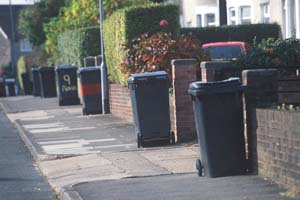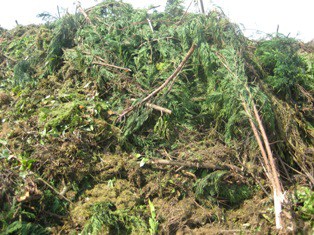
Mr Mills was speaking at the Resources and Waste Strategy Revisited conference yesterday (12 May), which was organised by letsrecycle.com.
In its delayed consistency consultation, Defra proposed that councils would have to provide every household and business with a plastic, paper and card, glass, metal and food waste collection service by 2023 (see letsrecycle.com story).
However, the department says it recognises that it may not be practicable for all local authorities and other waste collectors to collect these materials from the outset, or for sorting and treatment facilities to have made necessary changes to accept these materials by then. It is therefore seeking views on any necessary ‘transitional arrangements’.
Ministers are also considering free garden waste collections for every home, which they say could save householders more than £100 million a year in green waste charges.
Generation
Mr Mills said that while the ambitious legislation signalled a “great direction” from the department, much more detail was needed.
He said: “This is clearly the biggest cross-sector change in a generation, focusing across different sectors. Not just household waste but also businesses and non-household municipal sectors.

“However, there are many unanswered questions and still a lot of work to do. For example, separate collection requirements are still in play but collectors now must undertake new TEEP assessments for household and non household sectors.
“We have to think about the tests and the guidance which needs to be developed with this, but we’re going to be collecting established materials along with new materials such as film. How these all come together and what looks like good practice?”
The TEEP regulations are part of rules around the collection of waste for recycling and are an essential part of Duty of Care and other legislative requirements in the UK. They require separate collections (typically by material), but this does not have to happen if it can be shown that one or more of three factors apply – technically, environmentally and economically practicable – so that there is a valid case for not collecting separately.
Materials
The consultation also said that plastic film should be included from 2027, and included metal packaging such as foils and aerosols to be included from the start.
According to Mr Mills, this has led to even more unanswered questions and could change the face of collections in the future.
“There are many unanswered questions and still a lot of work to do”
Mr Mills continued: “We have to consider, what is the burden on local authorities? Do we really know what those collection and processing costs will be? Do we really know how consumers and residents will respond? Have we got enough treatment capacity?
“There are many unanswered questions and still a lot of work to do. I think there will also be a response from producers in terms of fee modulation and how they might re-design materials, which will have knock-on effect of collections, along with a DRS. There is a feeling that to encompass all of this, collections are going to get more and more complex and we can expect frequency and service changes to happen.”
Garden waste
Following on from Mr Mills was Andrew Bird, national representative of the Local Authority Recycling Advisory Committee (LARAC).

Mr Bird spoke about the provision for free garden waste collections set out in the consultation, which has been one of the most contentious issues for local authorities.
Mr Bird, who is also head of recycling and fleet services for Newcastle under Lyme borough council, dismissed the idea that free garden waste would remove this material from residual collections.
“We have charged for three years and we have not seen any garden waste in our residual waste after introducing charges. We had some in depth composition analysis in the year following its introduction and it wasn’t there. We are collecting nearly 80% of the tonnage as when it was a free service.
“Where the other 20% has gone, nobody knows, it isn’t at HWRCs or residual so we can presume it has been composted.
“Other authorities who charge have similar data to ours, so I think there is much more work to be done. It’s important to remember that the only reason we introduced charging was because of huge government cutbacks, we simply had no choice. It was either stop the service all together or charge for it.
“We are already collecting 80% tonnage we used to, the quality is better as people used the free service as a means to hide residual waste.”
Consultation
In response to this, Mr Mills said that responses to the government’s first consultation in 2019 didn’t follow this rhetoric.

“I agree with some of the things Andrew has said, but in 2019 Defra asked for evidence and there was very little back. They share with WRAP what they received and actually it didn’t follow what Andrew said. Examples from local authorities showed a large concentration of garden waste in residual. So, if there is plea from councils please send in this data, but what was sent in last time didn’t echo that.
“Last year we published a waste composition report from 174 local authorities, all consistently showing various degrees of garden waste in residual. Some consultants suggest 33%, which seems ridiculous, we would consider it to be much lower. But the point is there is some in there, and we would encourage to authorities to look at how we can get the remaining garden waste out of the residual bin.”











Subscribe for free